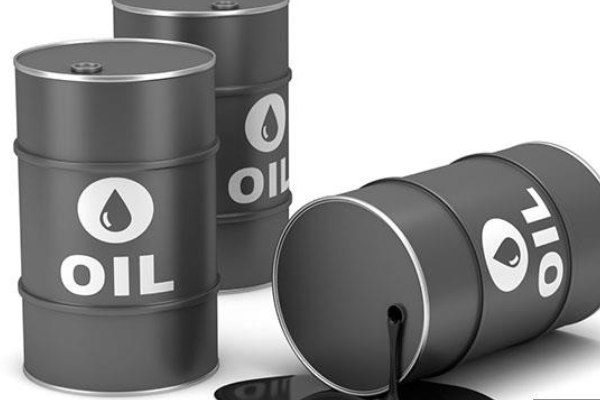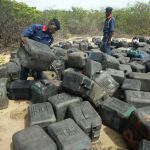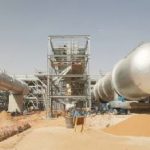This was disclosed by Chief Upstream Investment Officer, NNPC Upstream Investment Management Services, Bala Wunti, at the 11th Practical Nigerian Content forum in Uyo, Akwa-Ibom state.
According to him, Nigeria’s oil production as of Tuesday was 1. 6 million barrels per day, from 937, 000 barrels per day reported in September.
[wonderplugin_video iframe=”https://youtu.be/3LSKKak1PUo” lightbox=0 lightboxsize=1 lightboxwidth=960 lightboxheight=540 autoopen=0 autoopendelay=0 autoclose=0 lightboxtitle=”” lightboxgroup=”” lightboxshownavigation=0 showimage=”” lightboxoptions=”” videowidth=600 videoheight=400 keepaspectratio=1 autoplay=0 loop=0 videocss=”position:relative;display:block;background-color:#000;overflow:hidden;max-width:100%;margin:0 auto;” playbutton=”https://www.tvcnews.tv/wp-content/plugins/wonderplugin-video-embed/engine/playvideo-64-64-0.png”]
Wunti maintained that the output increase was a result of the government’s rectangular approach to the fight against crude oil theft.
“Crude theft affects all architecture that funds the country. When the oil theft reached its peak, everything including gas production was affected,” he said.
He said, “One, we have security agencies in which the Navy, the police, and everyone within that space was involved. The second is the regulators angle. At this stage, all regulators are made to fully be part of the efforts. Third is the operators’ angle. And, of course, all operators were involved. The fourth angle is the community angle in which all impacted communities have to be brought under the umbrella of a structured arrangement in the collective effort against crude oil theft. In all, these efforts were able to do three things; Detect, deter and respond appropriately.
Nigeria has been unable to meet OPEC production quota in the last one year.
At the September Federation Account Allocation Committee, a Nigerian National Petroleum Company Limited presentation said Nigeria lost as much as 8.14 million barrels in August.
The Bureau, in its GDP Sector Report, had said that the oil sector’s contribution of 5.7 per cent in Q3, 2022, was a decline when compared to a 6.3 per cent real GDP contribution recorded in Q2-2022.
The report stated that Nigeria’s average crude oil production in Q3-2022 was 1.2 million barrels per day (including condensates), lower than Q3-2021’s 1.6 million barrels per day, a 23.6 per cent decline.
According to a statement issued by the Ministry of Finance, Budget, and National Planning on Wednesday, the surplus crude account has dropped by 89% in the last eight years, falling from $4.1 billion in November 2014 to $472,513 in the same period in 2022. As of November 23, 2022, the balance was $472,513.64.
According to experts, the account has been emptied during the last eight years due to a lack of inflows, oil market volatility, and the country’s income crunch.














